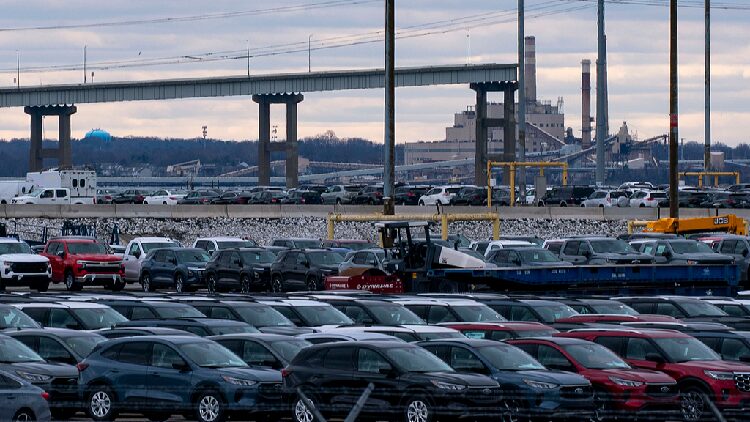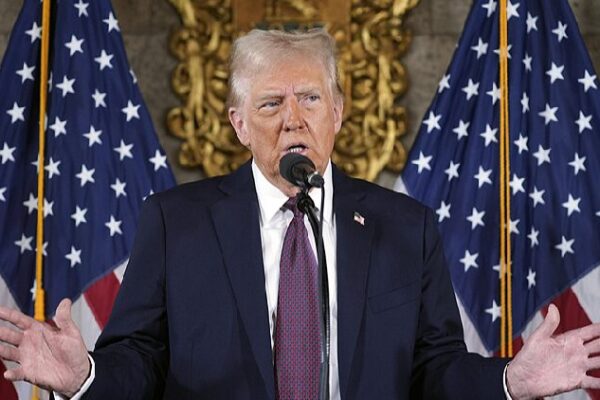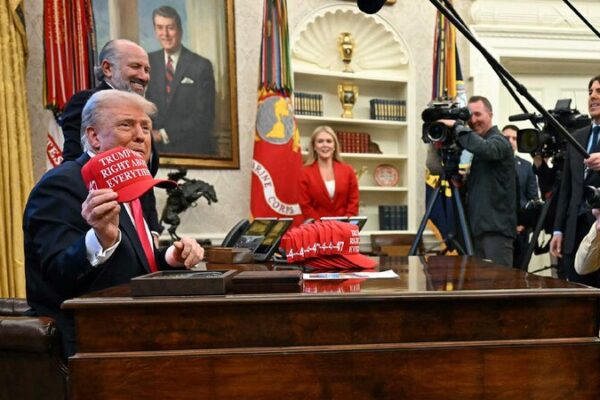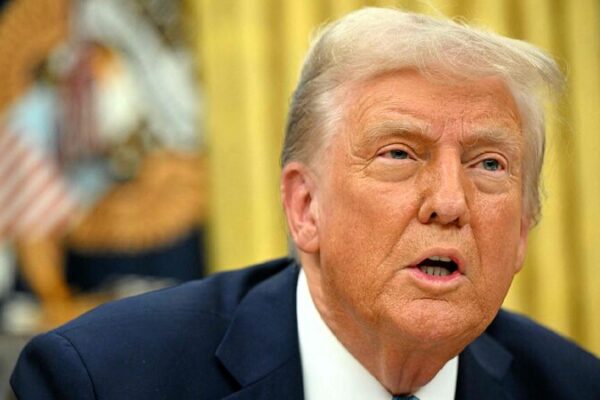U.S. President Donald Trump’s trade policies have taken an unpredictable turn, leaving global markets on edge. Just this week, Trump suspended the 25% tariffs he had imposed on goods from Canada and Mexico, only to set a looming deadline for their potential return on April 2.
The initial tariffs were imposed in early February but were delayed after a few days. They came into effect on March 4, only for exemptions to be announced the very next day following meetings with top U.S. automakers like Ford, General Motors, and Stellantis.
These back-and-forth moves have created uncertainty both at home and abroad. Canadian Prime Minister Justin Trudeau expressed concern, stating, “We will continue to be in a trade war that was launched by the United States for the foreseeable future.”
Experts suggest that Trump’s erratic tariff policies may be more about political posturing than a coherent strategy. Wang Yiwei, director of the Institute of International Affairs at Renmin University of China, believes the fluctuations signal weakness. “Trump’s back-and-forth tariff policies are more of a display of bluster than a firm strategy,” he said.
Wang highlighted the strong economic ties between the U.S. and Canada. When the U.S. imposed tariffs, Canada swiftly retaliated with a 25% tariff on 155 billion Canadian dollars’ worth of U.S. goods. “Once other countries retaliate against U.S. tariffs, it ultimately hurts American consumers and industries,” Wang added.
Public sentiment in Canada and Europe has shifted toward boycotting American products. Canadian provinces like Ontario, Quebec, and Manitoba have pulled U.S. alcoholic beverages from shelves, and many Canadians are canceling trips to the U.S. “Now is the time to choose products made right here in Canada,” Trudeau urged on social media.
In Europe, movements to boycott American goods are gaining momentum. Tens of thousands in countries like Sweden, Norway, and France are advocating for alternatives to U.S. brands. Norwegian company Haltbakk Bunkers announced it will stop supplying U.S. military vessels with fuel.
American companies offering services abroad are also feeling the impact. Platforms like Amazon and Netflix are facing cancellations, and Tesla’s sales in Europe reportedly dropped by over 50% in January.
Experts warn that tariffs won’t solve the structural issues in the U.S. economy. Wang Yiwei said, “The U.S. sees itself as being exploited by other countries, which is a flawed perception of globalization.”
Lv Xiang from the Chinese Academy of Social Sciences noted that the deeply integrated North American industrial chain, especially in the automotive sector, makes Trump’s goals unrealistic. “High labor costs and shortages in the U.S. make it unlikely to revive the auto industry to its past glory,” he said.
He warned that continued tariffs could raise U.S. inflation significantly and harm not just the automotive industry but the entire framework of North American economic integration.
Lin Xueping, a visiting researcher at Shanghai Jiao Tong University, echoed these sentiments. She pointed out that U.S. workers earn $35 an hour to assemble a car, compared to $4 an hour in Mexico. “It’s nearly impossible for the U.S. to bring the automotive industry back home due to high labor costs and the need for a specialized supply chain,” Lin said.
“In the future, U.S. manufacturing will operate in a high-cost, high-price, high-margin environment,” Lin added. “If the U.S. government forces manufacturing to stay, it will require sustained support to keep it afloat, and without it, collapse is inevitable.”
As Trump’s trade policies continue to fluctuate, the global community watches closely, wary of the economic ripple effects that may follow.
Reference(s):
Twists and turns: Trump's trade policy threatens economic stability
cgtn.com








